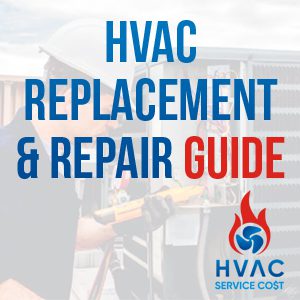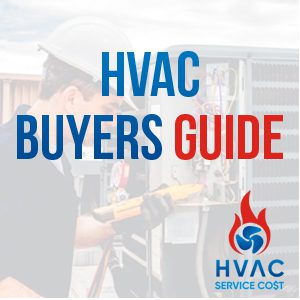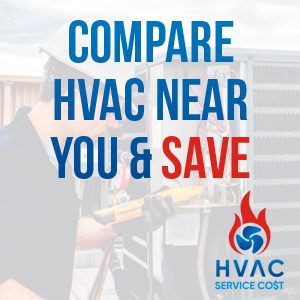
HVAC Service Fees Demystified: A Homeowner’s Guide to Typical Costs
Your home’s HVAC (Heating, Ventilation, and Air Conditioning) system is crucial to maintaining a comfortable living environment year-round. Whether it’s keeping you warm in the winter or cool in the summer, a well-functioning HVAC system is essential. However, with regular use, these systems require maintenance, repairs, and occasionally replacements, all of which come with varying costs. Understanding the typical fees associated with HVAC services can help you budget effectively and avoid unexpected expenses. In this guide, we will demystify HVAC service fees, breaking down the costs of common services, repairs, and factors that can influence these charges.
Why HVAC Services Are Essential
Before diving into the costs, it’s important to recognize why regular HVAC service is necessary. Routine maintenance extends the life of your HVAC system, maintains its efficiency, and prevents small problems from escalating into expensive repairs. An HVAC system that’s neglected can lead to higher energy bills, uncomfortable indoor temperatures, and in some cases, health hazards due to poor air quality.

Basic HVAC Service Costs: What to Expect
The cost of HVAC services can vary significantly depending on the type of service, system complexity, labor rates, and parts needed. However, understanding the general price range for standard services can give you a good baseline.
Service Call Fee
When you call an HVAC professional to inspect or repair your system, the first charge you’ll encounter is the service call fee, sometimes known as a diagnostic fee. This fee covers the technician’s time to travel to your location, inspect the system, and diagnose the issue.
Typical Cost: Service call fees generally range from $75 to $200, depending on your location and the company. Some companies may include this fee in the final repair cost if you proceed with their services.
HVAC Maintenance Costs
Routine maintenance is key to keeping your HVAC system running smoothly. Most HVAC companies offer maintenance services, which typically include a comprehensive inspection, cleaning, and minor adjustments.
Annual HVAC Maintenance: Routine maintenance, often scheduled annually or semi-annually, includes tasks like checking thermostat settings, lubricating moving parts, cleaning coils, inspecting ducts, checking refrigerant levels, and ensuring electrical connections are secure.
- Cost for a One-Time Visit: Between $100 and $200 per visit.
- Cost for a Maintenance Contract: Many companies offer annual service contracts ranging from $150 to $500 per year, covering two visits (spring and fall) and potentially offering discounts on repairs or emergency services.
Tune-Up Services
A seasonal tune-up involves a detailed inspection and adjustment of your HVAC system to ensure it’s operating efficiently before the peak heating or cooling seasons.
Typical Cost: A standard HVAC tune-up costs between $70 and $200. Tune-ups often include filter replacement, thermostat calibration, coil cleaning, and testing of system performance.

Common HVAC Repair Costs
Even with regular maintenance, your system may require HVAC repairs from time to time. Knowing the potential cost of common repairs can help you plan for unexpected expenses.
Refrigerant Leak Repair
If your air conditioner is not cooling effectively, a refrigerant leak might be the cause. Fixing a refrigerant leak involves locating the leak, repairing it, and recharging the system with the proper amount of refrigerant.
Typical Cost: Refrigerant leak repairs usually range from $200 to $1,500, depending on the severity of the leak and the amount of refrigerant needed. The refrigerant itself can be expensive, especially if your system uses older types like R-22, which is being phased out.
Thermostat Replacement
A faulty thermostat can lead to inefficient heating or cooling. Replacing a basic digital thermostat is a relatively simple fix, while upgrading to a smart thermostat can be a bit more involved.
- Cost for Basic Digital Thermostat Replacement: Approximately $100 to $300, including parts and labor.
- Cost for Smart Thermostat Installation: Between $200 and $500, depending on the model and integration complexity.
Blower Motor Repair or Replacement
The blower motor is responsible for pushing air through your HVAC system. If it fails, you may notice weak airflow or the system not operating at all. Repairing a blower motor is less expensive than replacing it, but the cost can vary based on the motor’s type and size.
- Blower Motor Repair: $150 to $450.
- Blower Motor Replacement: $500 to $1,500, depending on whether it’s a standard or variable-speed motor.
Capacitor or Contactor Replacement
Capacitors and contactors are small but vital electrical components in your HVAC system. A failing capacitor or contactor can prevent the system from starting up correctly.
- Cost to Replace a Capacitor: Between $100 and $300.
- Cost to Replace a Contactor: Typically ranges from $150 to $350.
Ductwork Repair and Cleaning
Air ducts play a critical role in distributing air throughout your home. Damaged or dirty ducts can hinder airflow, decrease efficiency, and reduce indoor air quality. Duct repairs may involve sealing leaks, replacing sections, or insulating the ducts.
- Duct Repair: Costs vary widely, from $300 to $700 for basic repairs. Major duct replacement can cost several thousand dollars.
- Duct Cleaning: Professional duct cleaning services usually cost between $300 and $500, depending on the size and complexity of the duct system.

Heat Exchanger Replacement
The heat exchanger is a key component in a furnace. If it cracks, it poses a serious safety hazard and should be replaced immediately.
Typical Cost: Replacing a heat exchanger costs between $1,000 and $3,500, depending on the furnace type and size.
AC Compressor Repair or Replacement
The compressor is the heart of your air conditioning system, responsible for circulating refrigerant. A malfunctioning compressor can lead to inefficient cooling or no cooling at all.
Typical Cost: Repairing a compressor ranges from $200 to $800, while replacing it can cost anywhere from $1,200 to $3,000. Given the high cost, some homeowners opt to replace the entire air conditioning unit if the compressor fails.
Full System Replacement: A Major Investment
If your HVAC system is old, frequently breaking down, or highly inefficient, replacing the entire system may be more cost-effective in the long run. The price of a full HVAC system replacement depends on the system type, size, efficiency rating, and installation complexity.
HVAC System Replacement Costs
- Central Air Conditioner: $3,000 to $7,500, depending on the unit size and SEER (Seasonal Energy Efficiency Ratio) rating.
- Furnace: $2,500 to $6,000, with gas furnaces generally costing more than electric models.
- Heat Pump: $4,000 to $8,000, depending on the model and efficiency rating.
- Ductless Mini-Split System: $2,000 to $8,000, with costs varying based on the number of indoor units and installation complexity.
Installation Costs
The installation process significantly influences the total cost of an HVAC system replacement. For example, homes requiring new ductwork, electrical upgrades, or modifications to accommodate a new system will incur higher labor costs. Generally, installation can make up 40-60% of the total replacement cost.

Factors That Influence HVAC Service Costs
Understanding the various factors that influence HVAC service fees can help you anticipate potential costs and budget more effectively.
Location
Service costs vary depending on your location. Urban areas with a higher cost of living often have higher HVAC service rates. Additionally, regions with extreme weather conditions may have increased demand for HVAC services, which can drive up prices.
System Age and Complexity
Older HVAC systems or those with complex designs (like variable-speed motors or multi-zone setups) typically require more specialized knowledge and parts, which can increase service fees.
Emergency Services
HVAC issues often arise at inconvenient times, such as during a heatwave or a winter storm. If you require emergency services outside of regular business hours, you may incur additional fees. Emergency call-out charges can range from $100 to $400 on top of standard repair costs.
Seasonal Demand
The time of year can affect service fees. During peak seasons (summer for AC services, winter for heating), HVAC companies often experience higher demand, which may result in longer wait times and potentially higher prices. Scheduling routine maintenance during the off-season can sometimes save you money.

Tips to Manage HVAC Costs
While HVAC services can be costly, there are ways to manage and potentially reduce these expenses.
Regular Maintenance
Routine maintenance is one of the most effective ways to extend the life of your HVAC system and prevent costly repairs. Annual maintenance contracts can provide regular system check-ups at a discounted rate, often including priority service for repairs.
DIY Maintenance
Simple tasks like changing air filters regularly, keeping vents clear, and cleaning around the outdoor unit can improve your system’s efficiency and reduce the likelihood of breakdowns.
Get Multiple Quotes
For larger repairs or system replacements, obtain multiple quotes from reputable HVAC companies. This allows you to compare pricing, services, and warranties to ensure you’re getting the best value.
Know When to Replace
If your HVAC system is nearing the end of its lifespan (typically 15-20 years for furnaces and 10-15 years for air conditioners), consider replacing it before major issues arise. Newer systems are more energy-efficient, which can lead to long-term savings on utility bills.
HVAC service fees can vary widely depending on the type of service, system complexity, and region. By understanding the typical costs of maintenance, repairs, and replacements, you can budget effectively and make informed decisions about your home’s heating and cooling needs. Regular maintenance and timely repairs are key to preventing more significant issues and extending the life of your HVAC system. By being proactive and staying informed, you can keep your HVAC system running efficiently and ensure your home remains comfortable year-round.




Leave a Reply